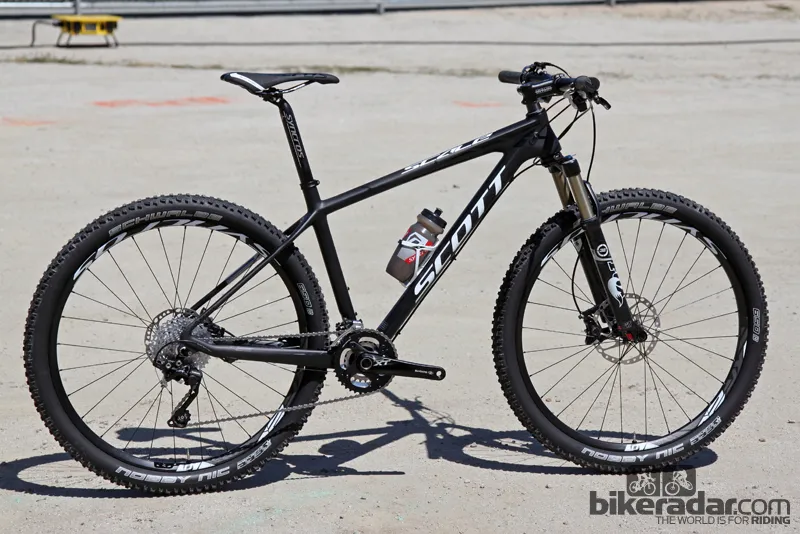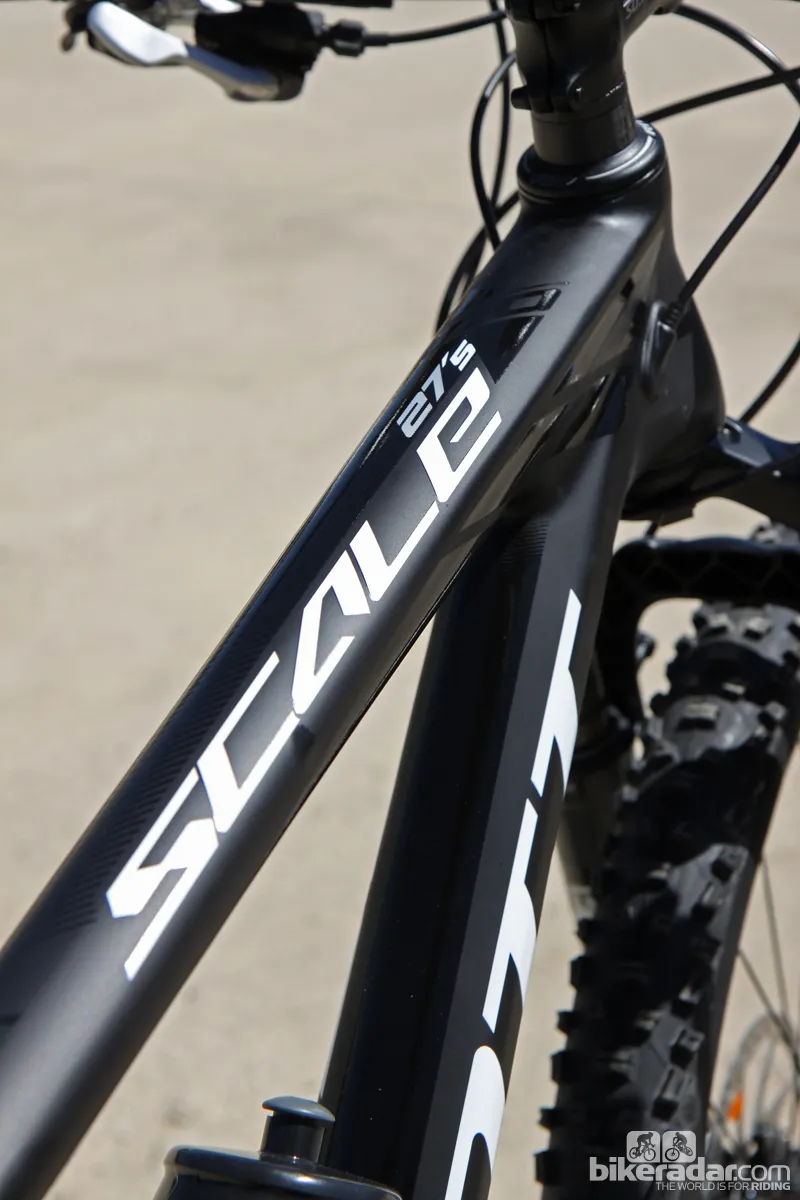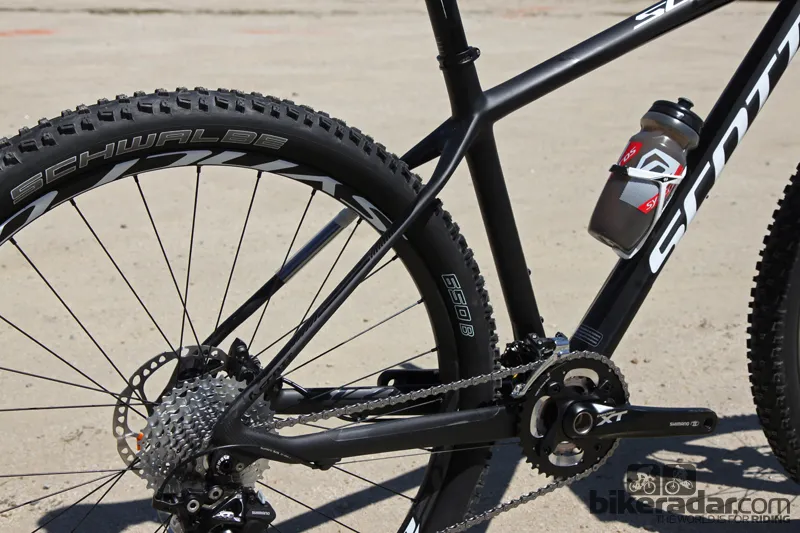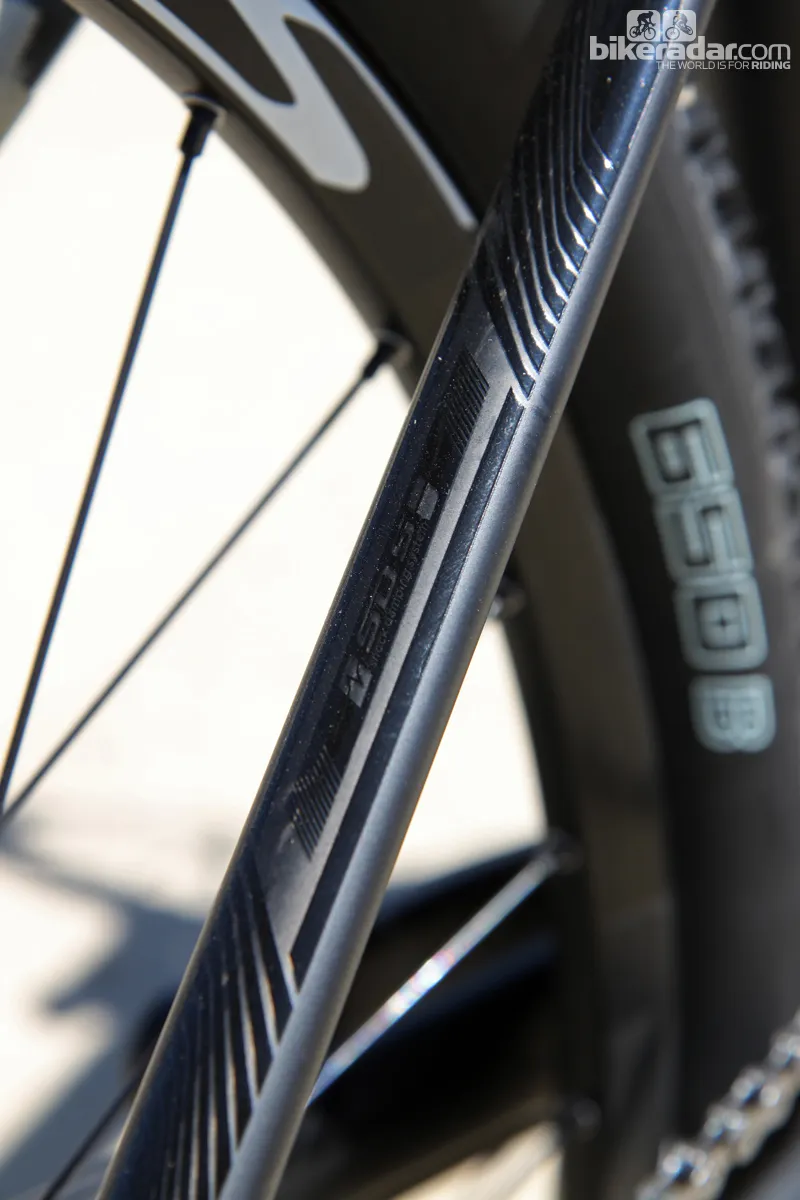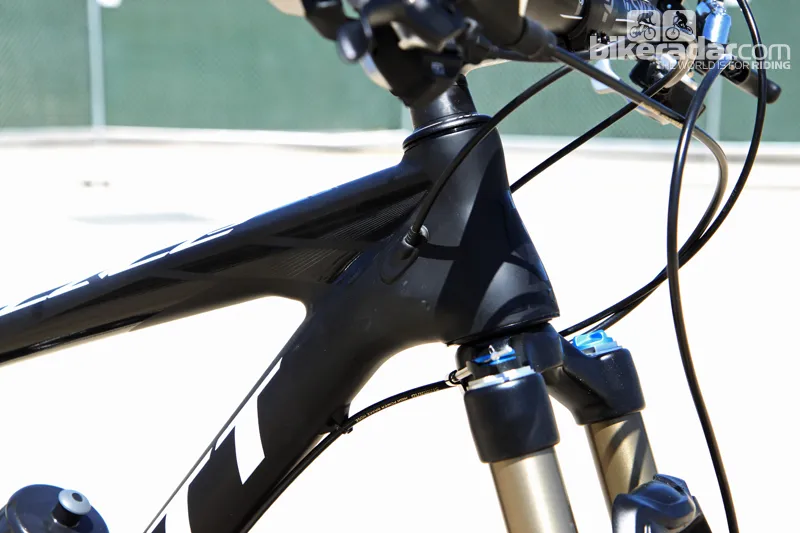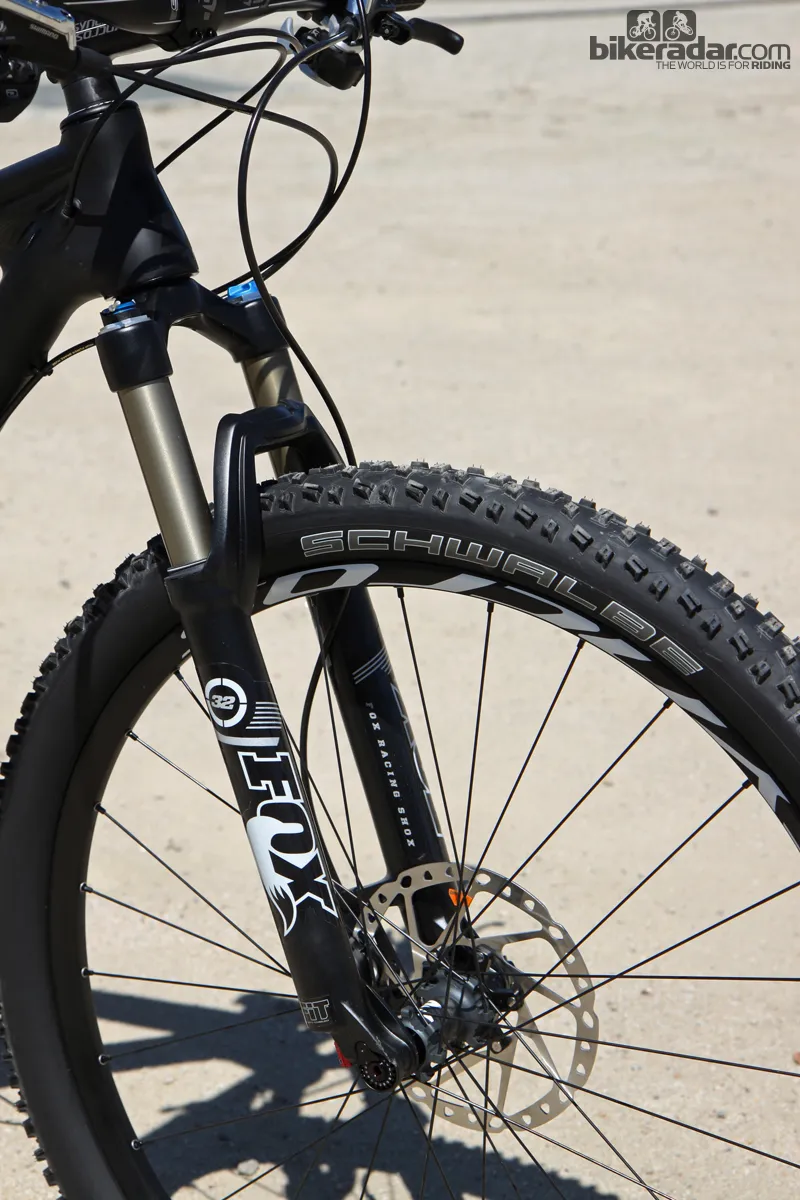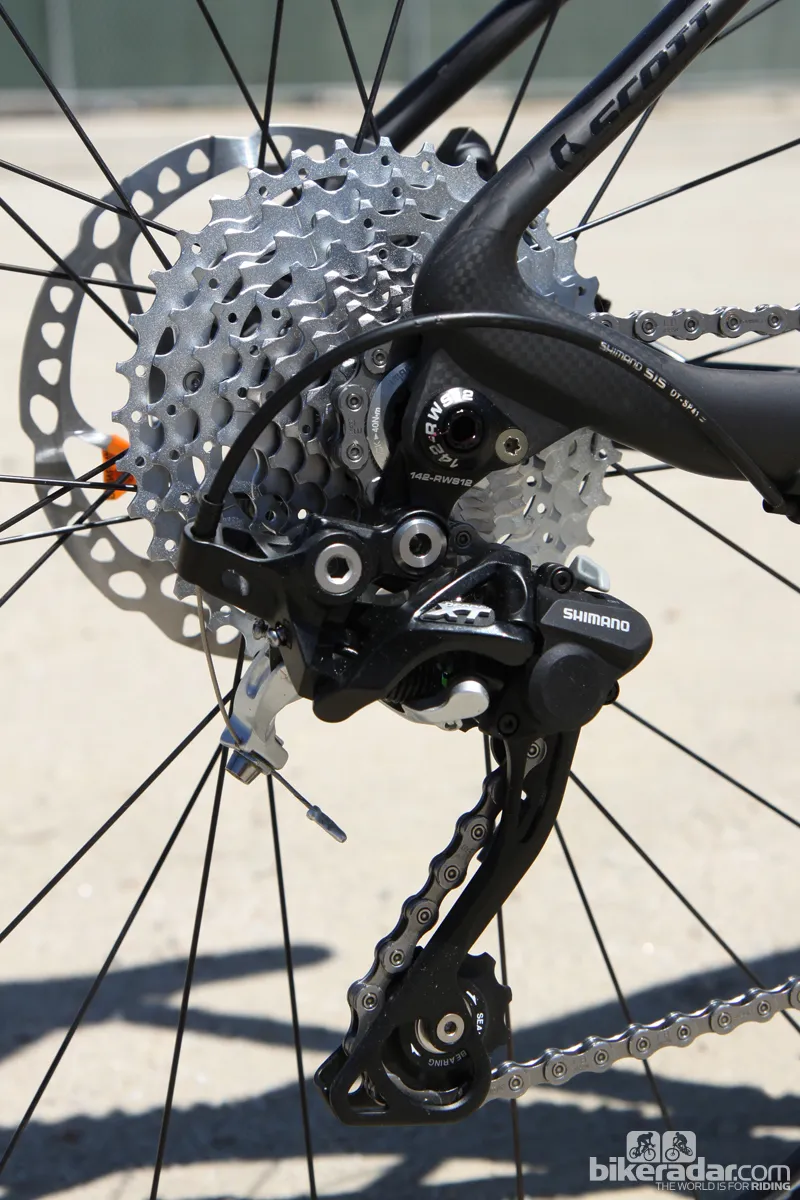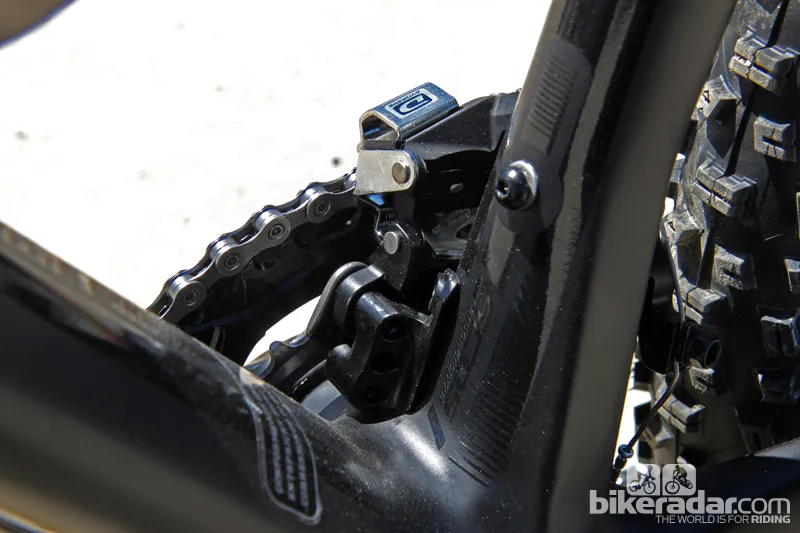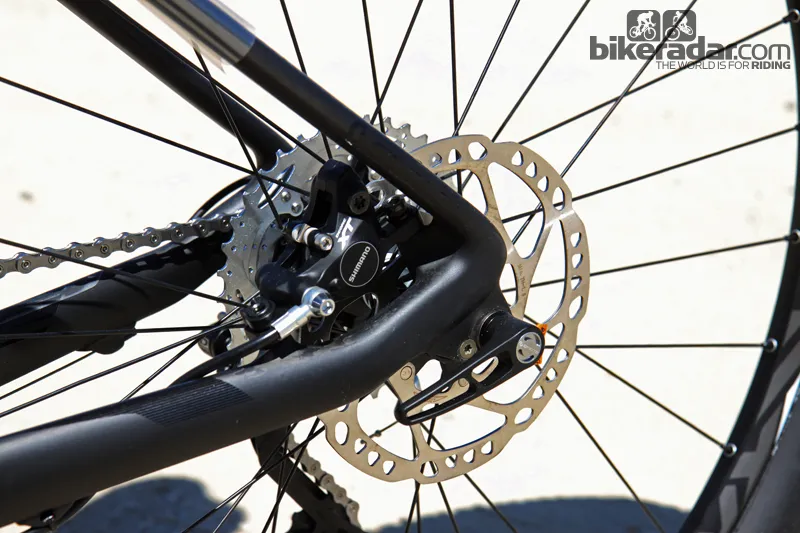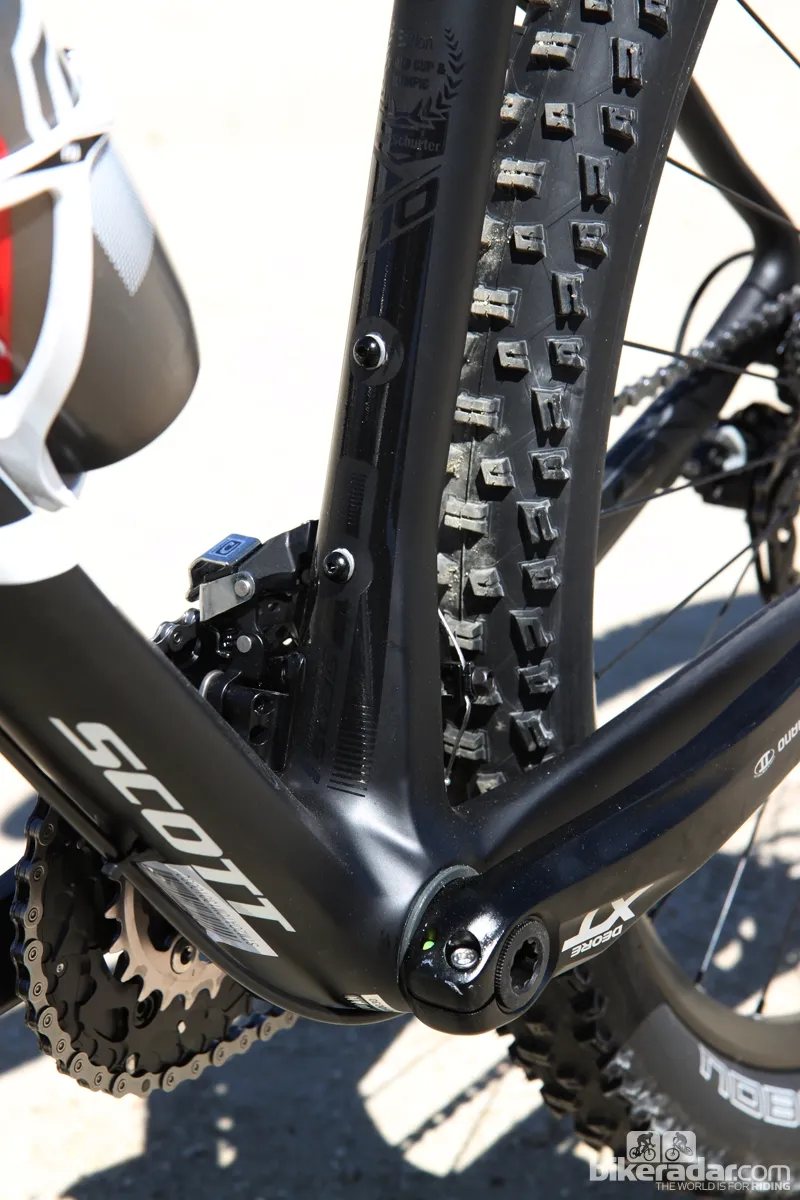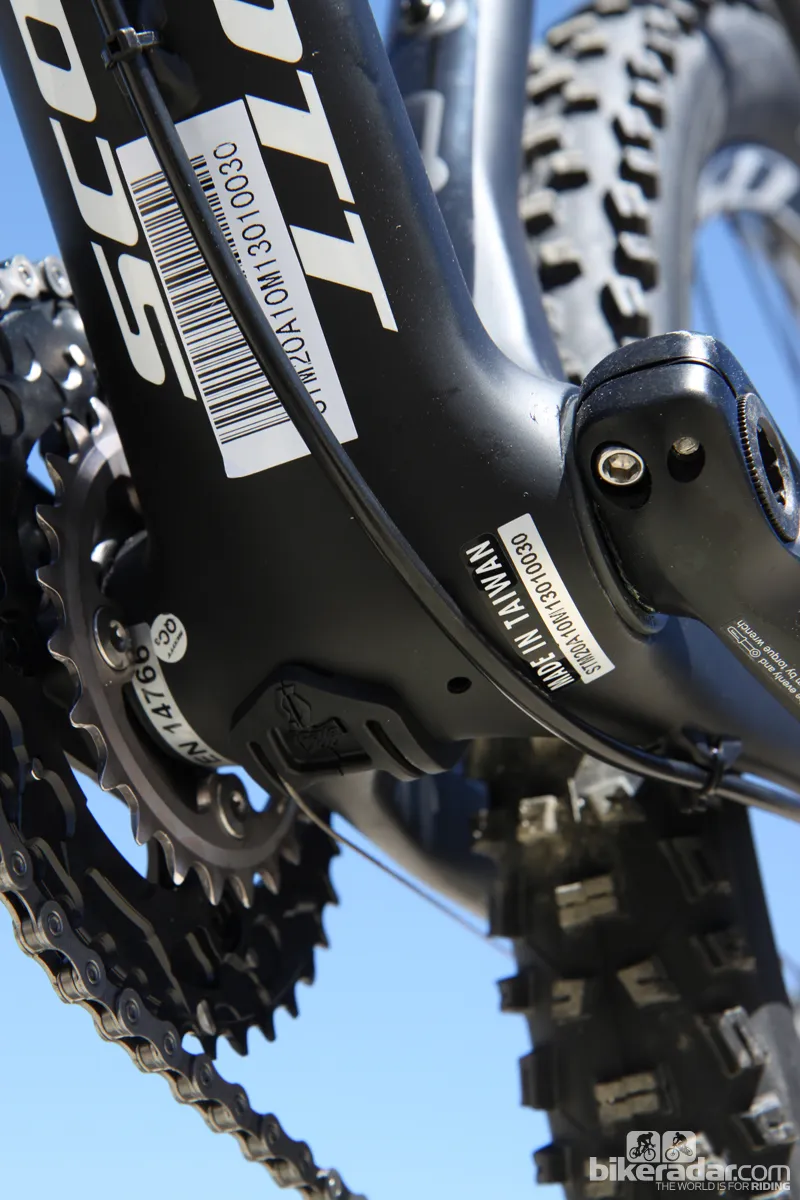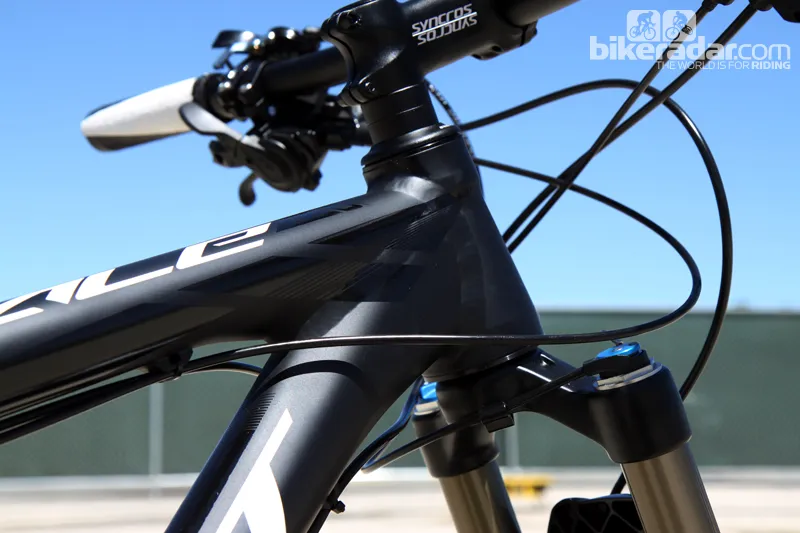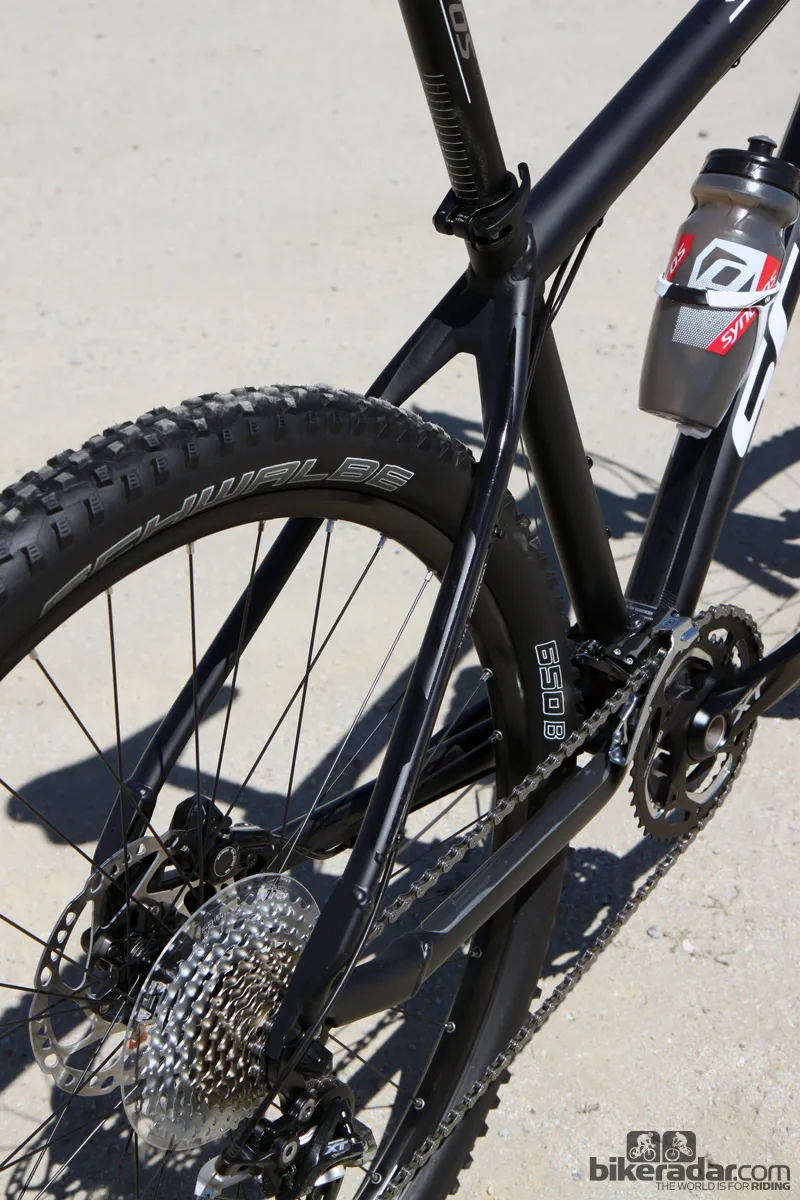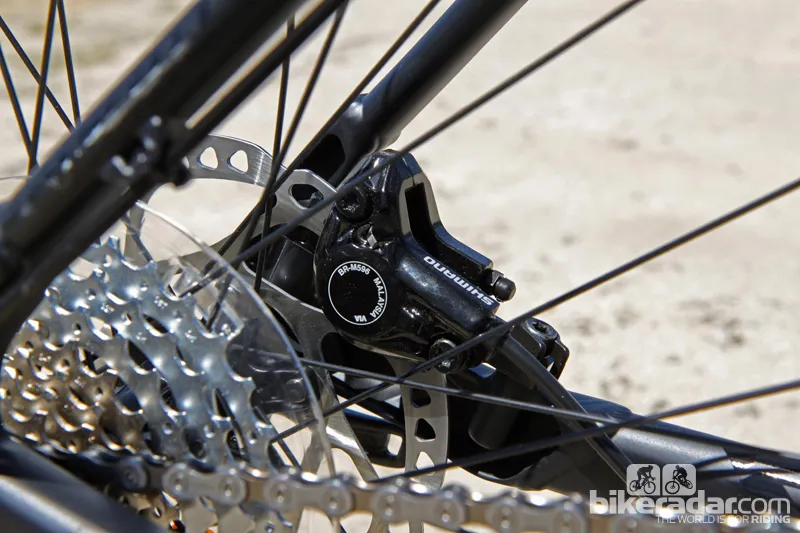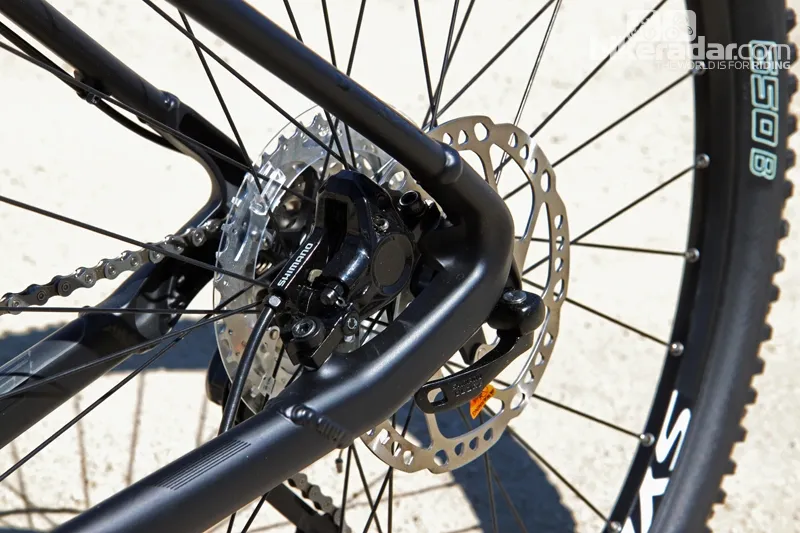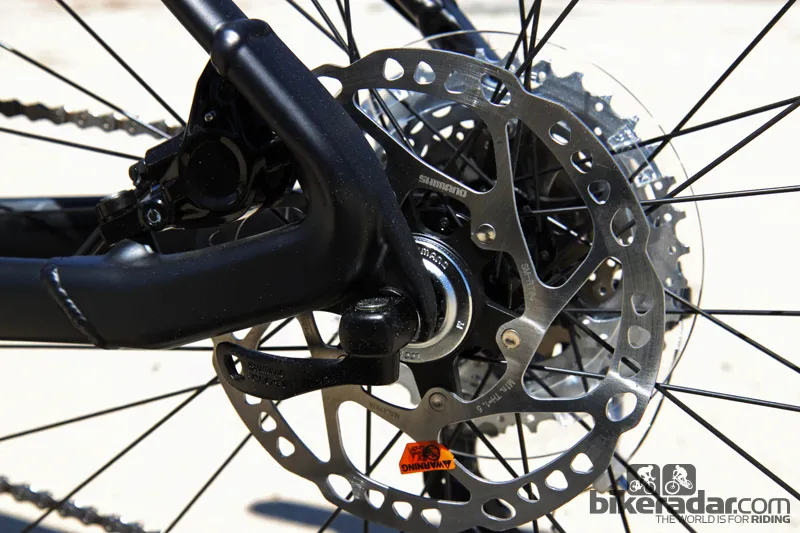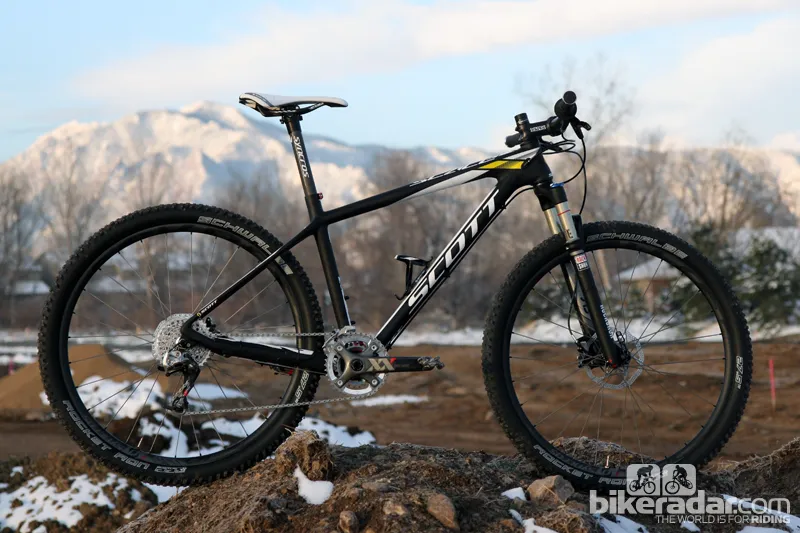Scott has been supplying the Scott-Swisspower and, more recently, Crankbrothers Race Club teams with 650b/27.5-inch Scale carbon hardtails but up until now, they're been strictly team-only items. That's now changed with the release of the carbon fiber Scale 710 and the aluminum Scale 740 complete bikes plus the limited edition Scale 700 RC Swisspower frame, all of which are already in warehouses and ready to ship.
The Scale 710 features Scott's top-end HMX-NET fiber blend and similar shaping to existing Scales, including large-diameter tubing with mostly roundish cross-sections and gentle shape transitions, flattened 'SDS' (Shock Damping System) seat stays with up to 4.6mm claimed vertical movement on bumps, an extra-wide PF92 press-fit bottom bracket shell, and a direct-mount front derailleur with a chain catcher plate built into the stout aluminum bracket.
Also included is Scott's ultralight integrated seatpost clamp, internal cable routing with molded carbon housing stops, and a short tapered head tube for aggressive bar positions but also a progressive 69-degree head tube angle. In another impressively forward-thinking move, the carbon rear dropouts are thru-axle only (convertible to 142x12mm, 135x12mm, or 135x10mm standards).
The Scale 710 will come with a smart workhorse build kit that includes a Shimano Deore XT 2x10 group, DT Swiss-made Syncros XR 2.0 aluminum tubeless clincher wheels, a Fox 32 Float 27.5 Factory CTD fork with three-position RideLoc handlebar remote, and Syncros FL 1.5 finishing kit for US$4,300.

The three-position Scott RideLoc lever operates Fox's CTD damper - and it's far tidier than the one Fox produces
Actual weight for a complete bike is 10.55kg (23.26lb, size medium, without pedals).
The more wallet-friendly Scale 740 instead switches to a butted 6061 aluminum frame with the same geometry. Build kit highlights include a Shimano Deore XT/SLX group, Syncros XC-44 rims laced to Shimano and Formula hubs, a Fox 32 Float 27.5 Evolution CTD fork with three-position RideLoc remote, and slightly heavier Syncros finishing kit for US$2,400.
Actual weight for a complete bike is 11.54kg (25.44lb, size medium, without pedals).
Both options are offered in medium, large, and extra-large sizes with a small option pending.
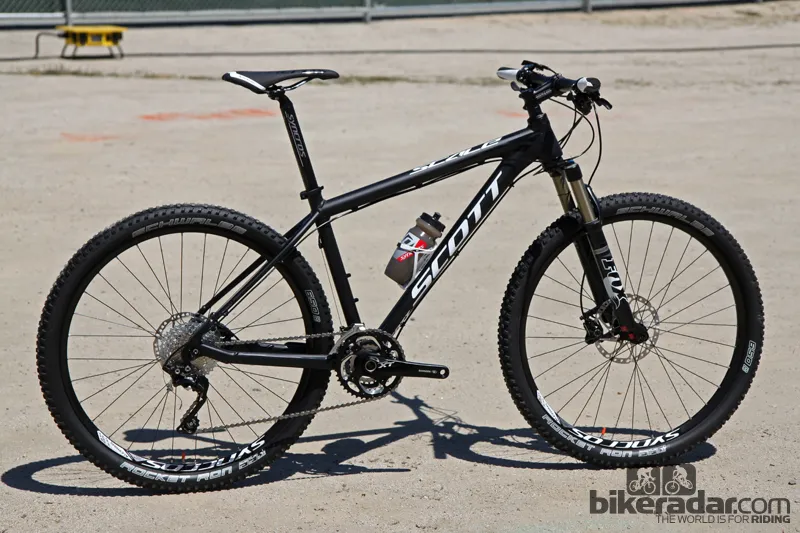
The 740 uses the same geometry as the 710, but in aluminum
DIYers with deep pockets can instead build up the limited-release Scale 700 RC Swisspower frame as they wish with a base price of US$2,300. Scott isn't just casually calling this the Swisspower edition, either, as the medium-only size is actually a replica of Nino Schurter's custom, extra-agile geometry.
Changes include a 70-degree head tube angle instead of the stock 69-degree one, a 73.5-degree seat tube angle instead of 73 degrees, 4mm less bottom bracket drop, and an effective top tube length that's been shortened 5mm to 595mm. Scott also equips this model with a PressFit 30 bottom bracket shell instead of the standard PF92 one.
Interested parties should speak up quickly, though, as Scott will only produce 200 frames with just 25 of them coming into the US. Actual weight for a medium frame with integrated seatpost collar, rear derailleur hanger, and aluminum water bottle bolts is 990g.
Why 27.5-inch at all, though? Isn't that mostly for new-school trail and enduro bikes?
Scott claims cross-country racers have just as much to gain from the 'tweener wheel format. According to Scott (and our own test rides seem to agree), it offers some of the benefits of 29er wheels – a faster roll, better grip, and increased ability to roll over obstacles – but with less of a penalty in terms of acceleration and maneuverability, not to mention the fact that they're easier to fit to riders of smaller stature.
Scott says that moving up to 27.5-inch wheels adds 140g (five percent) of additional rotating mass as compared to 430g (11 percent) for a 29er when based on a 2,450g 26-inch wheelset and tires. That difference is magnified when you take rotational inertia into account, too, which make the 27.5-inch format feel notably snappier and more agile than 29ers.
Scott is by no means abandoning 29ers, though, and they're still the best choice for courses or trails with lots of flat-out speed. World Cup-type terrain with their ultra-steep and abrupt climbs and descents require a more dynamic personality, though, and now riders have yet another choice.

